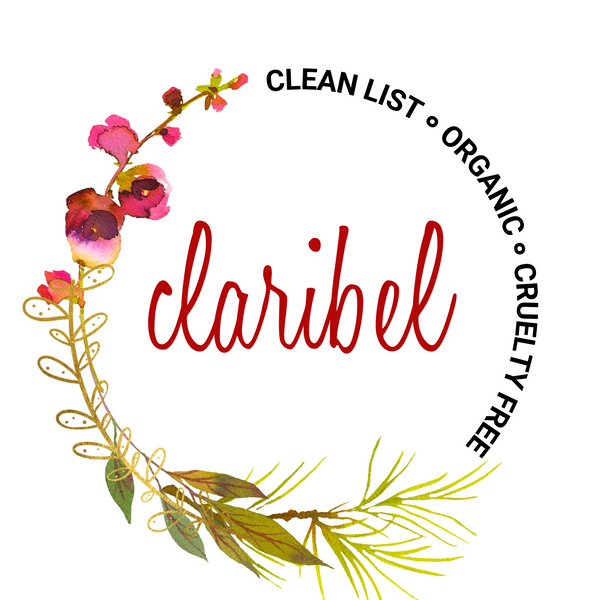
Face Skin Discoloration
In this blog post we cover the reasons why you might be experiencing face skin discoloration, the various kinds of skin conditions that are most common, treatments, and natural ingredients that can help heal and alleviate face skin discoloration.
Reasons Why You Might Be Experiencing Face Skin Discoloration
Pregnancy hormones or fluctuations in hormones. Changes in our hormones can increase the production of melanin, which can lead to face skin discoloration. Hormonal changes can also impair the proper balance of our immune system, which can then trigger an outbreak of a skin disorder.
Stress or trauma. When you’re experiencing stress, there are various things that can happen within the body that you do not expect. Stress increases the hormone cortisol, which in turn increases the inflammation in the body. This can leave to skin disorders, outbreaks, hives, and face skin discoloration.
Insulin resistance. Insulin resistance and pre diabetic patients can experience skin rashes and face skin discoloration. The change in the way blow flows can trigger these issues. Once the insulin is regulated with lifestyle changes, medication, or insulin, these rash can often subside and diminish.
Immune system disorders. Immune system problems can cause our cells to attack healthy cells, and this can lead to joint pain, skin disorders, and face skin discoloration. Identifying and dealing with an immune system disorder is the primary way to tamp down skin discoloration and breakout, so consult your doctor on ways to boost your immune system, which will probably be a combination of diet, lifestyle, and medications.
Contact with an allergen or irritating ingredient. There are a wide variety of ingredients on the market that can cause a skin rash or face skin discoloration. Cleaning products, acids, detergents, and even some plants like poinsettias and peppers, can cause an outbreak. Fortunately, there are ways to combat this and prevent it in the future, if you can identify the culprit.
A Skin condition, as noted below. There are some skin conditions we are either born with or become predisposed to, which we might have to address once or deal with over a lifetime. Below are an outline of the most common types of skin disorders that can cause face skin discoloration.
Our lightening & brightening face cream is an excellent option to help you through those difficult times when you've experienced some face skin discoloration, or if you just need something to help you naturally fade spots and hyperpigmentation.
Various Kinds of Face Skin Discoloration
Rosacea. Rosacea is a reoccurring skin disease that fades and relapses. It can be triggered by drinking a hot beverage, or alcohol, spicy foods, stress, and exposure to sunlight. You may experience redness and dryness to your face skin – primarily your nose, cheeks and forehead. If you are experiencing rosacea or are avoiding and outbreak, you should consider abstaining from alcohol, witch hazel, products that exfoliate, or any products that contain menthol.
Tinea Versicolor. Tinea versicolor is a fungus that is caused by a certain type of yeast found on the skin. If the yeast is left untreated, it can cause patches of discoloration on the face and other various parts of the body. People that are susceptible to this type of skin issue are those who might live in hot or humid climates, have excessive sweating, oily skin, hormonal changes, or a weakened immune system. This skin ailment can be treated with a variety of over the counter products, like Lotrimin, Monistat, Selsun Blue shampoo, or Lamisil.
Contact Dermatitis. Contact Dermatitis occurs when a person comes in contact with an allergen. If someone comes in contact with a new product or detergent, it may cause a break out of contact dermatitis, which looks red and irritated. This can last a few days, but with over the counter anti-histamines and topical treatments, it can be alleviated sooner.
Strawberry Nevus. This red or purple mark can appear often appear at birth or in young children. As the person ages, it does often get smaller and in some cases disappears. There are medications that can help treat a strawberry nevus, but again, with time, they are known to fade and disappear.
Eczema. There are actually 7 different types of eczema, but they all have a few things in common. An outbreak of eczema can result in dry, itchy, scaly skin. Eczema can be triggered by an immune system problem, substances can trigger it (like bleach, nickel, solvents), allergies, and stress.
Actinic Keratosis. Actinic keratosis is often causes by years of sun exposure, which can result in dry, flaky red and irritated skin. This skin condition is considered precancerous and should be closely watched for developments that will be swift treatment.
Melasma. Melasma is a fairly common skin condition that can cause dark patches and discoloration of the face, and sometimes neck, arms and/or chest. This can be common with pregnant women, people with darker skin, and others with high sun exposure.
Our lightening & brightening face cream is an excellent option to help you through those difficult times when you've experienced some face skin discoloration, or if you just need something to help you naturally fade spots and hyperpigmentation.
Natural Ingredients that Help with Face Skin Discoloration
According to medical studies and clinical studies, there are a variety of natural, plant based ingredients that can help alleviate face skin discoloration:
Aloe Vera. Aloe is often the “go to” ingredient for just about every skin or hair ailment, and face skin discoloration is no exception. Aloe contains aloin, which is a natural depigmenting compound that can actually help relieve face skin discoloration.
Apple Cider Vinegar. While it seems like apple cider vinegar is a “cure all” for everything imaginable, there is substantial evidence that it can actually help face skin discoloration and other skin discoloration and ailments. Apple cider vinegar contains acetic acid, which has been proven successful in many studies. Coincidentally, trichloroacetic acid is a stronger version of acetic acid, and trichloroacetic acid (TCA) is often used to treat many skin ailments.
Green or Black Tea. Steeped green or black tea is known to have some depigmenting effects to the skin, and the antioxidants in the tea can help heal the skin from a variety of skin condition outbreaks. Tea is categorized as being safe for most skin types.
Licorice Root Extract. Licorice root or licorice extract has been known to help reverse face skin discoloration and hyperpigmentation issues. It’s known to be safe for almost all skin types.
Milk or Buttermilk. While this sounds like an odd suggestion, evidence shows us it does make sense. Milk and buttermilk contain lactic acid, which is excellent for correct face skin discoloration and other pigmentation issues.
Red Onion. Red onion contains the compound allium cepa, which has been proven to help reduce discoloration in the skin. Applying crushed red onion, while not the most appealing sounding task, can help reduce face skin discoloration.
Tomato Paste. Tomatoes and tomato paste contain a high concentration of lycopene, which is known to heal skin irritations and reduce face skin discoloration.
Red Lentils. This is an odd suggestion, but it is known to work in various parts of the world. Soak red lentils first, blend into a fine paste, and then apply to skin. Leave on for 20 minutes and then rinse off.
Our lightening & brightening face cream is an excellent option to help you through those difficult times when you've experienced some face skin discoloration, or if you just need something to help you naturally fade spots and hyperpigmentation.
Conclusion
Face skin discoloration and skin outbreaks can have a devastating effect on how we feel and our confidence. If we can identify the cause, we can put together a solid plan to remedy the issue. These suggestions and ingredients are meant to help you find the right path to healing and feeling better.

